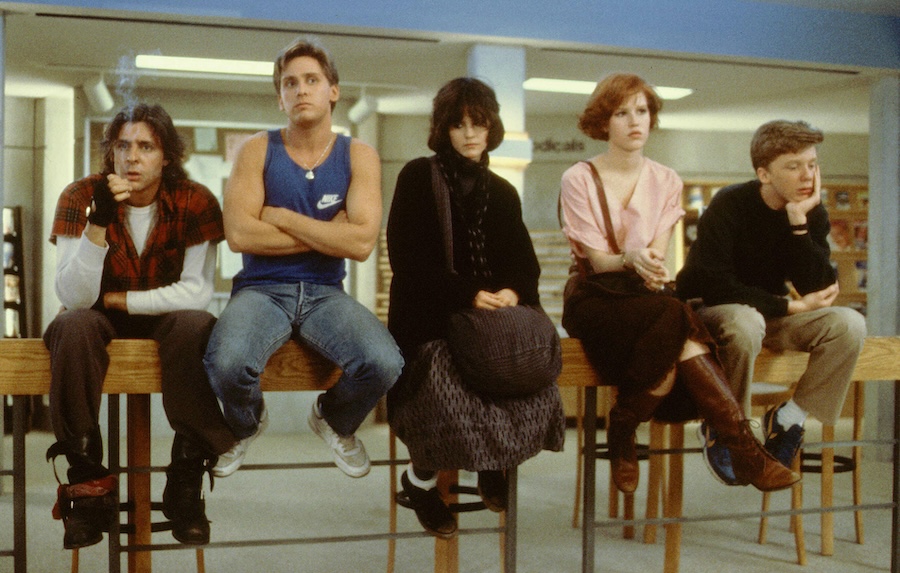
The events in the iconic John Hughes movie took place on March 24, 1984.

This film, directed by John Hughes, was part of a memorable decade in cinema history, defining a generation and resonating with audiences everywhere. Lets revisit the halls of fictitious Shermer High School and celebrate the legacy of this terrific coming-of-age classic.
Despite being released in 1985, the events of The Breakfast Club take place on March 24, 1984, as revealed in the film’s opening sequence. Set entirely within the confines of Shermer High School’s library, it follows the interactions of these five teenagers as they navigate the complexities of high school social dynamics and confront their own insecurities. Over the course of several hours in detention, they break down barriers, share their stories, and form unexpected bonds that transcend their cliques and stereotypes.
What makes The Breakfast Club even more compelling is its basis in reality. The film is inspired by Hughes’ own experiences growing up in Northbrook, Illinois, and is said to be influenced by his time at Glenbrook North High School. Additionally, the movie’s opening narration reveals that the characters’ detention was inspired by an actual early morning detention Hughes served at New Trier High School in the Chicago suburbs.
“I wanted to make a movie that spoke to teenagers in a way that felt honest and respectful. The Breakfast Club was my attempt to capture the complexity and nuance of adolescence, and I’m grateful that it continues to resonate with audiences.”
– John Hughes
While the film is set in fictional Shermer, Illinois, The Breakfast Club was predominantly filmed in and around Chicago. The iconic high school featured in the movie is actually Maine North High School in Des Plaines, Illinois. Additionally, the film’s opening and closing shots, featuring the school’s exterior, were filmed at Maine North High School. The library scenes, where the majority of the action takes place, were shot on a sound stage constructed at the defunct Glenbrook North High School in Northbrook, Illinois.
“I’m proud to have been a part of a movie that continues to inspire and connect with people across generations. The Breakfast Club touched on themes that are timeless and relevant to everyone.”
-Emilio Estevez
The film started Judd Nelson as John Bender – The rebellious troublemaker with a tough exterior. Molly Ringwald as Claire Standish – The popular princess who hides her vulnerabilities. Emilio Estevez as Andrew Clark – The jock struggling with parental pressure. Anthony Michael Hall as Brian Johnson – The brainy outcast weighed down by expectations. Ally Sheedy as Allison Reynolds – The eccentric loner who longs to connect, and the late Paul Gleason as the tough talking principal Richard Vernon who oversees this troubled lot.
“John Hughes did an incredible job of capturing the essence of each character. They felt real, flawed, and relatable, which I think is why audiences connected with them so deeply.”
-Ally Sheedy
One of the most memorable aspects of The Breakfast Club is its anthemic theme song, “Don’t You (Forget About Me),” performed by the Scottish rock band Simple Minds. Interestingly, Hughes initially approached several artists to record the song but ultimately chose Simple Minds after hearing their track “The American” and being impressed by its cinematic quality.
“Being a part of The Breakfast Club was a defining moment for me. It opened doors and allowed me to explore different facets of my acting abilities.”
– Molly Ringwald
The Breakfast Club premiered in theaters on February 15, 1985. Despite initial modest expectations, the film quickly gained traction and became a box office success, grossing over $51 million worldwide against its budget of approximately $1 million. The Breakfast Club arrived at a pivotal moment in popular culture, capturing the essence of teenage angst and rebellion in the 1980s. The film’s themes of identity, alienation, and the search for belonging struck a chord with audiences, making it an instant classic.









